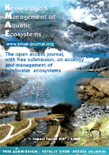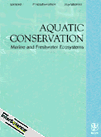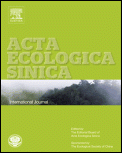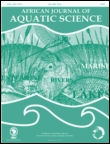
Knowledge and Management of Aquatic Ecosystems
Scope & Guideline
Innovating Insights in Water Science and Management
Introduction
Aims and Scopes
- Ecological Health and Biodiversity Monitoring:
The journal aims to publish research that assesses the health of aquatic ecosystems through biodiversity indicators, such as fish and macroinvertebrate populations, and employs various methodologies including ecological modeling, field surveys, and molecular techniques. - Impact of Invasive Species:
A core focus is on understanding the effects of invasive species on native aquatic communities. Research often explores competition, predation, and habitat alteration caused by non-native species, providing insights for management and conservation strategies. - Conservation and Restoration Practices:
The journal emphasizes studies on conservation strategies and restoration practices for freshwater and marine ecosystems. This includes habitat enhancement, species re-introduction, and management of water quality to support biodiversity. - Climate Change and Environmental Stressors:
Research addressing the impacts of climate change and other anthropogenic stressors on aquatic ecosystems is a significant area of focus. Studies investigate how temperature shifts, pollution, and habitat modification affect aquatic species and ecosystems. - Use of Innovative Methodologies:
The journal is known for incorporating innovative methodologies, such as environmental DNA (eDNA) sampling and metabarcoding, to assess biodiversity and ecosystem health, allowing researchers to gain insights with minimal ecological disturbance.
Trending and Emerging
- Microplastic Pollution and Its Ecological Impact:
There is a growing focus on the ecological consequences of microplastic pollution, particularly on aquatic organisms and ecosystems. This theme is critical as it addresses a pervasive environmental issue with implications for biodiversity and food webs. - Ecosystem Services Valuation:
Recent studies are increasingly assessing the economic value of ecosystem services provided by aquatic systems, showcasing the importance of integrating ecological health with economic frameworks to support conservation efforts. - Restoration Ecology:
Research on effective restoration techniques for degraded aquatic ecosystems is on the rise, with an emphasis on understanding the ecological dynamics involved in successful habitat rehabilitation and species recovery. - Climate Change Adaptation Strategies:
There is an emerging trend toward exploring adaptation strategies for aquatic ecosystems in the face of climate change, including resilience-building measures for both species and habitats. - Community and Functional Diversity Studies:
Research that examines community composition and functional diversity within aquatic ecosystems is gaining traction, reflecting a shift towards understanding the roles of different species in ecosystem functioning.
Declining or Waning
- Traditional Fisheries Management:
Research focused solely on traditional fisheries management practices has declined, as there is a growing trend towards holistic ecosystem management approaches that consider a broader range of ecological interactions. - Single Species Studies:
There has been a noticeable decrease in papers dedicated to single-species studies without considering ecological interactions or habitat dynamics, as researchers increasingly recognize the importance of community-level analyses. - Chemical Pollution Studies:
While chemical pollution remains a concern, the frequency of studies focused exclusively on chemical analysis of pollutants has waned, with a shift towards integrated assessments that consider biological responses alongside chemical data. - Static Habitat Assessments:
Research that employs static or one-time assessments of habitats is declining in favor of dynamic, long-term monitoring studies that capture temporal changes and ecological resilience. - Aquaculture Focus:
The journal has seen a reduction in papers specifically addressing aquaculture practices, as the focus shifts toward broader ecological impacts and sustainability concerns in aquatic food production.
Similar Journals

Water Biology and Security
Advancing aquatic knowledge for a sustainable future.Water Biology and Security, published by KEAI PUBLISHING LTD, is a pivotal open-access journal that has been addressing critical issues in the interdisciplinary fields of water sciences, aquatic biology, and environmental sustainability since its inception in 2022. With an E-ISSN of 2772-7351 and a distinguished ranking within the top quartile (Q1) of several categories including Agricultural and Biological Sciences, Animal Science and Zoology, Aquatic Science, and Water Science and Technology, the journal stands out as a leading platform for innovative research. Based in Beijing, China, and supported by an impressive impact factor derived from its Scopus rankings, the journal aims to disseminate high-quality and impactful research that addresses the challenges related to water resources and ecosystems. Its open-access format enhances accessibility, ensuring that vital information reaches policymakers, practitioners, and scholars worldwide. As we converge through 2024, the journal aspires to foster a vibrant scholarly community, facilitating dialogues that inform practice and advance the scientific understanding of aquatic environments.

Tropical Life Sciences Research
Unveiling Innovations in Tropical Life SciencesTropical Life Sciences Research, published by PENERBIT UNIVERSITI SAINS MALAYSIA, is an esteemed open-access journal dedicated to the realms of Agricultural and Biological Sciences, Biochemistry, Genetics, and Molecular Biology, and Medicine. Since its inception in 2006, this journal has established itself as a significant platform for disseminating high-quality research findings that contribute to the understanding of tropical biodiversity and health-related issues. With its innovative approach, Tropical Life Sciences Research has garnered an impressive impact factor, reflecting its influence in the academic community; it is ranked Q2 in Agricultural and Biological Sciences and Q3 in both Biochemistry and Medicine categories as of 2023. Researchers and professionals can access a wealth of knowledge through this journal, whose content spans from 2009 to 2024, making it a vital resource for students and experts alike interested in advancing the science of tropical ecosystems and health. The journal also stands out for its comprehensive Scopus rankings, indicating its relevance and quality in the competitive academic landscape.

AQUATIC CONSERVATION-MARINE AND FRESHWATER ECOSYSTEMS
Connecting science and policy for aquatic conservation.AQUATIC CONSERVATION-MARINE AND FRESHWATER ECOSYSTEMS, published by WILEY, is a premier international journal dedicated to advancing the understanding of aquatic ecosystems and their conservation. With an impact factor reflecting its significant influence and a distinguished position in the Q1 quartile across key categories such as Aquatic Science, Ecology, and Nature and Landscape Conservation, this journal serves as an essential resource for researchers and professionals engaged in the study and protection of marine and freshwater environments. Covering a broad array of topics, from ecosystem management to conservation strategies, the journal encourages the dissemination of innovative research and interdisciplinary perspectives. Although it is not an open-access publication, this journal is esteemed for its rigorous peer-review process, facilitating a platform where vital research influences policy and practice in the aquatic sciences. Established in 1991, AQUATIC CONSERVATION continues to be a cornerstone in the academic exploration and safeguarding of aquatic ecosystems through to its converged years of 2024 and beyond, providing a critical lens for the future of environmental sustainability.

Acta Ecologica Sinica
Cultivating insights in ecology and environmental stewardship.Acta Ecologica Sinica, published by Elsevier, is a prominent journal in the field of ecology, with a strong focus on fostering understanding in ecological principles and their applications. Established in China, this journal holds an impressive Q2 categorization in both Ecology and Ecology, Evolution, Behavior and Systematics as of 2023, positioning it within the top tier of ecological research. With its Scopus rankings placing it in the 81st and 78th percentiles in relevant ecological domains, it serves as a vital platform for researchers and practitioners to disseminate findings that promote ecological sustainability. Although it operates under a traditional access model, its significant impact is underscored by its systematic convergence of key ecological inquiries across multiple years (2006-2008, 2014, 2017-2023). By engaging with the latest empirical studies, theoretical advancements, and methodological innovations, Acta Ecologica Sinica is indispensable for scholars dedicated to advancing ecological knowledge and addressing environmental challenges.

ENVIRONMENTAL BIOLOGY OF FISHES
Pioneering studies that shape the future of aquatic science.ENVIRONMENTAL BIOLOGY OF FISHES, published by SPRINGER, is a premier journal in the fields of Aquatic Science and Ecology, Evolution, Behavior and Systematics. With a rich history spanning from 1976 to 2024, this esteemed journal provides a platform for groundbreaking research that addresses critical issues such as fish ecology, species behavior, and environmental influences on aquatic life. Recognized for its significant contributions, it holds a Q2 ranking in both the Aquatic Science and Ecology categories, reflecting its influence and relevancy in the academic community. The journal's focus on innovative ecological studies makes it an essential resource for researchers, professionals, and students dedicated to advancing our understanding of fish biology and the broader ecological systems of which they are a part. Although not an open-access publication, the insights and findings presented in its articles are invaluable for those engaged in the preservation and sustainable management of aquatic environments.

VIE ET MILIEU-LIFE AND ENVIRONMENT
Exploring the Depths of Ecology and Aquatic ScienceVIE ET MILIEU - LIFE AND ENVIRONMENT is a pivotal journal in the realms of aquatic science and ecology, serving as a vital platform for researchers and professionals interested in the interconnections between living organisms and their environments. Published by the esteemed OBSERVATOIRE OCEANOLOGIQUE BANYULS in France, this journal has been disseminating valuable research since its inception in 1980, with volumes covering various topics pertinent to environmental dynamics through to 2024. Despite its current classification in the Q4 quartile for both aquatic science and ecology, the journal offers a unique opportunity for scholars to contribute to niche areas often overlooked by more prominent publications. VIE ET MILIEU is committed to fostering a comprehensive understanding of ecological interactions and the conservation of aquatic ecosystems, making it an essential resource for those engaged in environmental science and biology. Researchers can access a wealth of knowledge that supports their work, encourages collaboration, and inspires innovative approaches to pressing ecological issues.

Neotropical Biology and Conservation
Championing Open Access for Ecological InsightsNeotropical Biology and Conservation, published by Pensoft Publishers, serves as a pivotal platform for researchers and professionals dedicated to the understanding and preservation of biodiversity in the Neotropical region. This Open Access journal, operational since 2006 and based in Brazil, invites contributions that delve into the complexities of ecology, evolution, and conservation strategies pertinent to the diverse ecosystems of South and Central America. With a commendable 2023 impact factor reflected in its Q3 rankings across multiple categories including Animal Science, Ecology, and Plant Science, it stands as a valuable resource for academics seeking to publish innovative findings and foster dialogue in these critical areas of study. The journal's commitment to open access ensures that knowledge is readily available to anyone interested in advancing the field of neotropical biology and conservation. Join the global conversation and contribute to the vital work of preserving our planet’s rich biological heritage through rigorous research published in this esteemed journal.

LIMNETICA
Innovating research in water science and ecology.LIMNETICA is a prestigious academic journal dedicated to advancing the field of Aquatic Science, Ecology, and Water Science and Technology. Published by the Asociación Española de Limnología in Spain, this journal serves as a vital platform for researchers and professionals seeking to share their findings and insights from 1996 to 2024. With a commendable Q2 ranking in Ecology and notable Q3 rankings in Aquatic Science and Water Science and Technology, LIMNETICA emphasizes high-quality, peer-reviewed research that contributes to our understanding of freshwater ecosystems. Although currently not classified under Open Access, its rigorous indexing and Scopus rankings—positioning it in the top 64th percentile for Environmental Science—illustrate its impact in the scientific community. Researchers, students, and professionals are encouraged to engage with LIMNETICA to stay abreast of key developments and foster collaborative efforts in aquatic research.

International Journal of Limnology
Transforming Aquatic Science through Open AccessThe International Journal of Limnology, published by EDP SCIENCES S A, is a cutting-edge journal dedicated to the field of aquatic sciences, with a strong emphasis on limnology—the study of inland waters. Headquartered in France, the journal serves as a vital resource for scholars and practitioners alike, aiming to advance the understanding of freshwater ecosystems and their management. With an e-ISSN of 2823-1465 and classified within the Q3 category of the 2023 Aquatic Science quartiles, it occupies a significant niche in academic research, ranking 150 out of 247 in Scopus listings. The journal’s open access policy ensures that research findings are widely disseminated, facilitating collaboration and innovation across global aquatic science communities. Published continuously from 2022 to 2024, the International Journal of Limnology aspires to contribute to sustainable practices and enhance ecological understanding, making it an essential publication for researchers, professionals, and students committed to the stewardship of aquatic resources.

AFRICAN JOURNAL OF AQUATIC SCIENCE
Advancing aquatic knowledge for a sustainable future.AFRICAN JOURNAL OF AQUATIC SCIENCE, published by TAYLOR & FRANCIS LTD, is a premier scholarly journal dedicated to the field of aquatic science, ecology, and environmental management, playing a crucial role in advancing research and knowledge in these vital areas. With an impressive Q2 ranking in both Aquatic Science and Ecology, Evolution, Behavior and Systematics, the journal seeks to publish high-quality research encompassing a wide range of topics related to freshwater and marine ecosystems, including biodiversity, conservation strategies, and the impacts of climate change. Featuring a rich history of publication from 2000 to 2024, the journal not only embraces rigorous peer review but also aims to foster collaboration and dialogue among researchers, practitioners, and students interested in aquatic environments. Readers will find that the journal’s commitment to impactful scientific communication is reflected in its notable rankings within the Scopus database, making it an essential resource for those engaged in aquatic research and management.